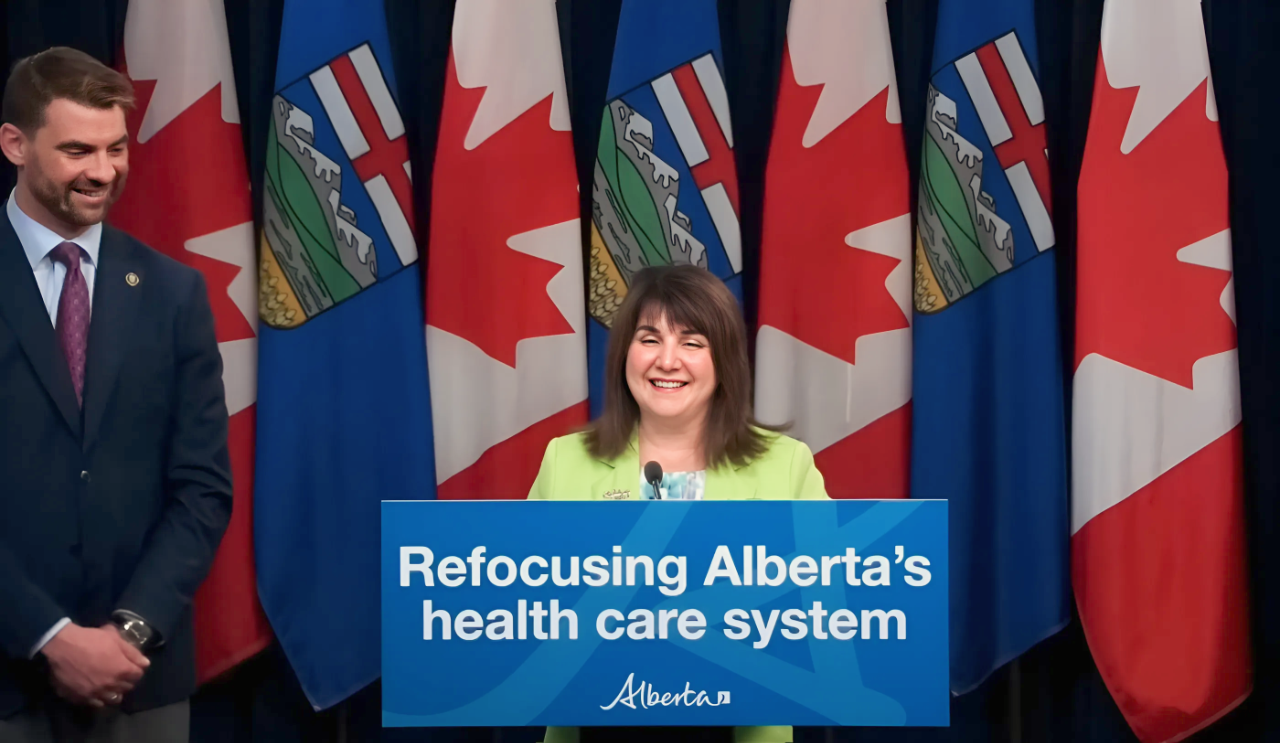In a pivotal move to reshape Alberta’s health care landscape, Minister of Health Adriana LaGrange and Minister of Mental Health and Addiction Dan Williams introduced Bill 22, the Health Statutes Amendment Act, which aims to establish four new provincial health organizations and bring transformative changes to the province’s health care system.
Minister LaGrange announced the bill, emphasizing the government’s commitment to creating a health care system that not only meets the needs of Albertans today but is also prepared to address future challenges. “This afternoon, I will be tabling Bill 22, the Health Statutes Amendment Act. Our province is in the midst of a transformative journey toward building a health care system that will not only meet the needs of Albertans today but also pave the way for future generations to thrive,” she stated.
Central to the proposed legislation is the creation of four provincial health agencies, each focused on a specific sector: primary care, acute care, continuing care, and mental health and addiction. LaGrange detailed the roles of these new entities, highlighting their importance in delivering integrated health services and ensuring that all Albertans have timely access to care.
“These agencies will be responsible for delivering integrated health services, ensuring that Albertans receive timely access to care regardless of where they live. Through clear identification of roles and responsibilities, we will streamline operations, enhance accountability, and improve transparency within our health care system,” LaGrange explained.
The new primary care agency aims to ensure that every Albertan has access to a primary care provider, such as a family physician or nurse practitioner. This initiative is particularly critical in rural areas, where access to primary health services has been a longstanding issue.
The acute care agency will focus on reducing wait times and enhancing the quality of care in hospitals and emergency departments across the province. This agency’s work will be crucial in addressing the urgent needs of patients and ensuring that acute care services are swift and efficient.
Equitable access to continuing care services is another priority. The continuing care agency will expand options and improve the quality of care for seniors and individuals with long-term health needs. This effort is part of a broader goal to provide comprehensive and equitable care for all Albertans.
Recovery Alberta, the newly established agency for mental health and addiction, is set to become operational this summer. It will provide comprehensive mental health and addiction services across the province, addressing the growing need for these critical services. Minister Williams, who supports this initiative, emphasized the importance of consistent access to high-quality mental health and addiction care.
To ensure a smooth transition, LaGrange assured that there would be no job losses for Alberta Health Services (AHS) staff moving to the new agencies. “Stability is key throughout this transition. There will be no job losses for staff who transition into the new organizations, and every effort is being made to ensure that there are no interruptions to patient care or employment,” she said.
Collective agreements and bargaining processes will remain intact, offering stability and continuity for employees. This assurance aims to alleviate concerns among health care workers about potential disruptions during the restructuring process.
The legislative changes proposed in Bill 22 are designed to improve governance and oversight of the health care system. Enhanced government oversight will ensure that resources are directed where they are needed most, particularly on the front lines, thereby improving patient care and supporting health care professionals.
“The health statutes amendment act will foster a culture of collaboration and integration within our health care system by providing the structure that supports its success. This will help further empower frontline workers and regional partners to drive change at the local level,” LaGrange added.
Assuming the bill passes, the new health care agencies will begin operations in phases. Recovery Alberta will start this summer, while the primary care, acute care, and continuing care agencies are scheduled to follow in the fall of 2024. This timeline allows for a methodical implementation process, ensuring that each agency is effectively established and operational.
Achieving the vision of a refocused health care system requires more than just legislative changes. LaGrange stressed the need for collaboration, innovation, and a commitment to excellence. “Achieving this vision requires more than just legislative changes. It requires collaboration, innovation, and a commitment to excellence,” she said.
Minister Williams echoed this sentiment, highlighting the importance of a hopeful and supportive approach to mental health and addiction services. “Recovery means someone can live a hopeful, fulfilled life even when symptoms persist. Recovery from addiction is helping somebody stop or reduce the use of drugs, supporting them as they rebuild their lives to reconnect with their family, community, and culture,” Williams stated.
With Bill 22, Alberta is taking a significant step towards a more efficient, accessible, and patient-centered health care system. As the province moves forward with these plans, the focus remains on ensuring that the health care system is responsive, effective, and capable of meeting the needs of its residents today and in the future.

